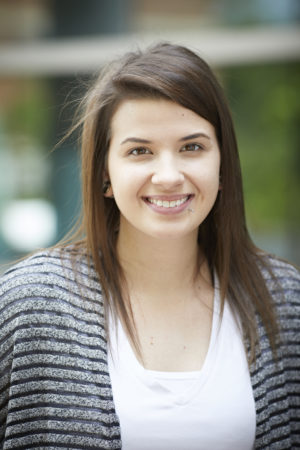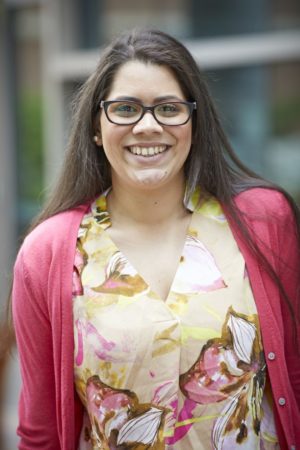Delaware Bio Breakfast features two Christiana Care gene editing scientists
Scientists from Christiana Care’s Gene Editing Institute discussed their breakthrough CRISPR gene editing research at the Delaware BioBreakfast at the John H. Ammon Medical Education Center at Christiana Hospital on July 26.

Brett Sansbury, a third-year doctoral student at the University of Delaware, spoke about a CRISPR gene-editing tool she discovered to successfully engineer multiple edits simultaneously to fragments of DNA extracted from a human cell. The tool can rapidly reproduce, in a human DNA sample, the unique and complex genetic features of an individual patient’s cancer tumor.

Natalia Rivera-Torres, Ph.D., research scientist and a team leader in clinical development of gene editing for cancer, discussed her discovery of how short pieces of synthetic single-stranded DNA, known as oligonucleotides, when used in gene editing with the CRISPR/Cas9 technique, can promote the repair of genetic mutations, help achieve a cleaner “cut” of the gene and reduce the degree of genetic fraying, or heterogeneity, that occurs during gene editing. Known as ExACT (EXcision and Corrective Therapy), her work has led to a fundamental understanding of how gene repair is carried out in human cells and how this process may vary in a variety of different patient samples.